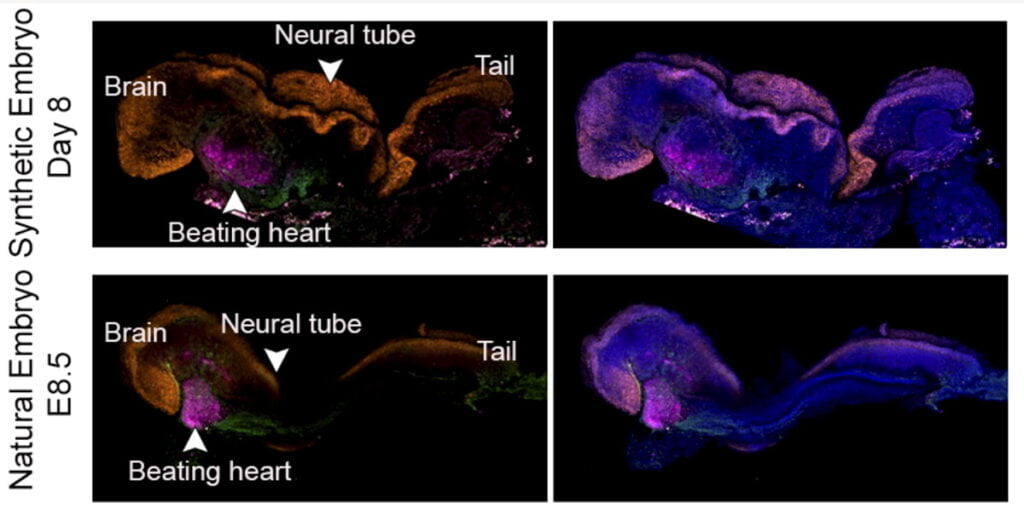breakthrough in “synthetic embryos,” but growing human organs are still a long way off
For the first time, according to stem cell researchers, “synthetic embryos” were produced without the use of sperm, eggs, or fertilization. However, the possibility of employing this method to develop human organs for transplantation is yet in the distant future.
The discovery was welcomed as a significant advance, but several scientists cautioned about future ethical issues and argued the results could not be properly recognized to be embryos.
Researchers from the Weizmann Institute of Science in Israel detailed how mouse stem cells self-assembled into embryo-like structures in the laboratory in a paper that was published this week in the journal Cell.
The study drew on previous work from 2018 in which a collection of mouse stem cells self-organized into an early embryo, though with much fewer cells.
Jacob Hanna, a Palestinian stem cell researcher, headed the Weizmann Institute team that went considerably further.
Beginning with cells taken from mice’s skin, they artificially transformed them back into stem cells.
Then, the stem cells were put in a unique incubator that rotated continually to resemble a mother’s womb.
Most of the cells were unable to create anything.
However, 50 of the 10,000 — or 0.5% — gathered into spheres and eventually developed into embryo-like structures, according to the researchers.
Early indications of a brain and a beating heart appeared after eight days, or around one-third of the 20-day mouse gestation period, scientists added.
They were said to be 95% identical to typical mouse embryos.
Hanna stated in a Weizmann statement that “the embryo is the best organ-making machine and the best 3D bioprinter — we sought to imitate what it does.”
“Not embryos,”
Despite being the most sophisticated artificial embryo-like structures ever created, some scientists who were not involved in the study cautioned against referring to them as embryos.
According to French stem cell expert Laurent David, AFP, “These are not embryos.”
They do not produce a viable individual who is capable of reproducing, he continued, “unless shown otherwise.”
He preferred to refer to them as embryoids, the term for a collection of cells that resembles an embryo, to emphasize the fact that they only displayed the earliest stages of organ development.
David, though, hailed the “extremely persuasive” discovery, saying it would open the door to more tests to determine how organs are formed precisely.
The group’s “next task,” according to Hanna, is to “understand how stem cells know what to do — how they self-assemble into organs and find their way to their allocated positions inside an embryo.”
– Implications for ethics
Without the need for organ donors, hundreds of patients might receive life-saving transplants each year if human organs could one day be manufactured in a lab.
Progress has been made in this new discipline; a few years ago, scientists were able to create an artificial intestine that could be implanted into a mouse in a lab.
Such organ implants, however, are still science fantasy for people.
Nevertheless, Hanna established Renewal Bio with the intention of figuring out how to apply the technology for medical treatment.
It is still very early to think of applying such a method to humans, according to researchers who were not engaged in the study.
The discovery “opens the door to similar investigations with human cells, however there are numerous regulatory hoops to pass through first and, from the point of view of the experiments, human systems lag behind mouse systems,” Alfonso Martinez Arias of Spain’s Pompeu Fabra University stated.
And aiming to get similar results from human cells will likely open an ethical can of worms.
“Although the prospect of synthetic human embryos is still distant, it will be crucial to engage in wider discussions about the legal and ethical implications of such research,” James Briscoe of Britain’s Francis Crick Institute said.



